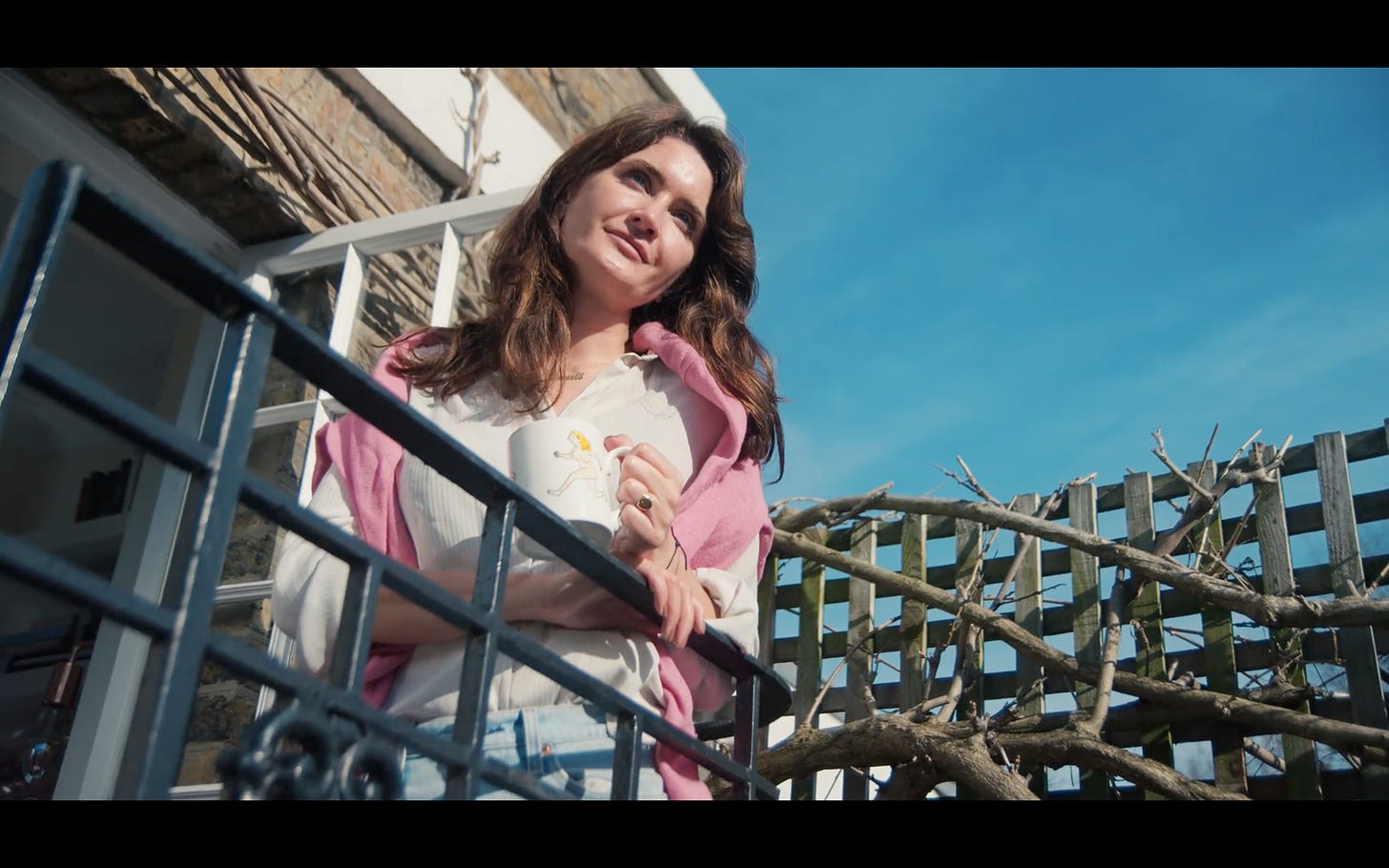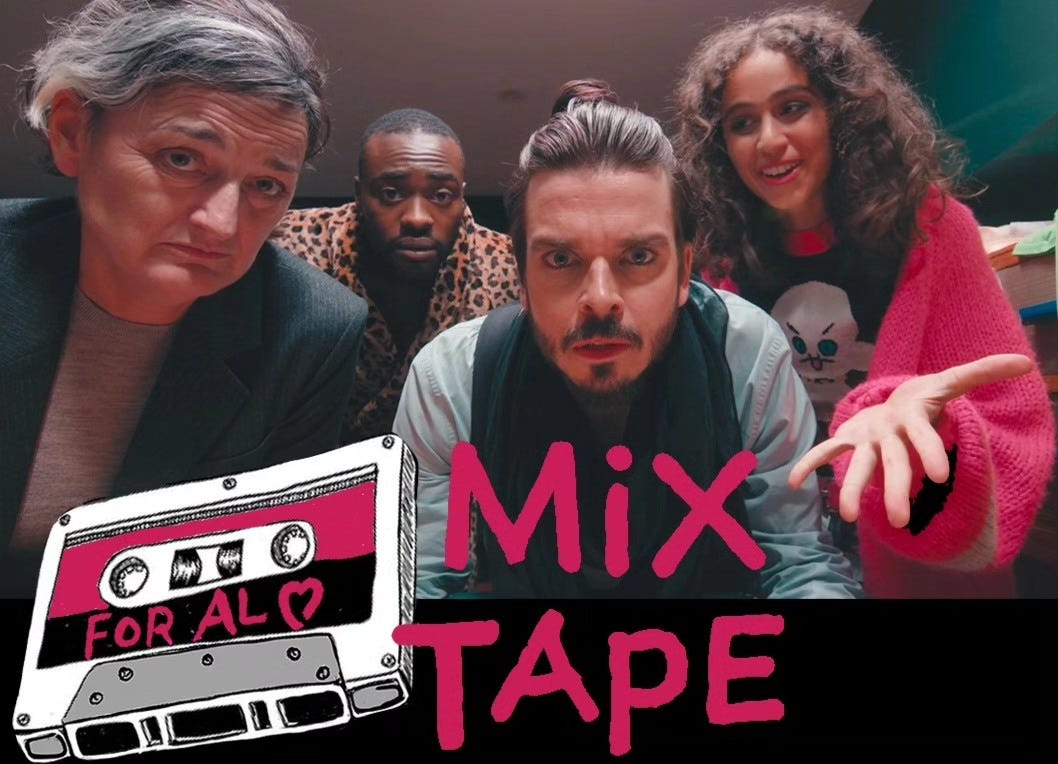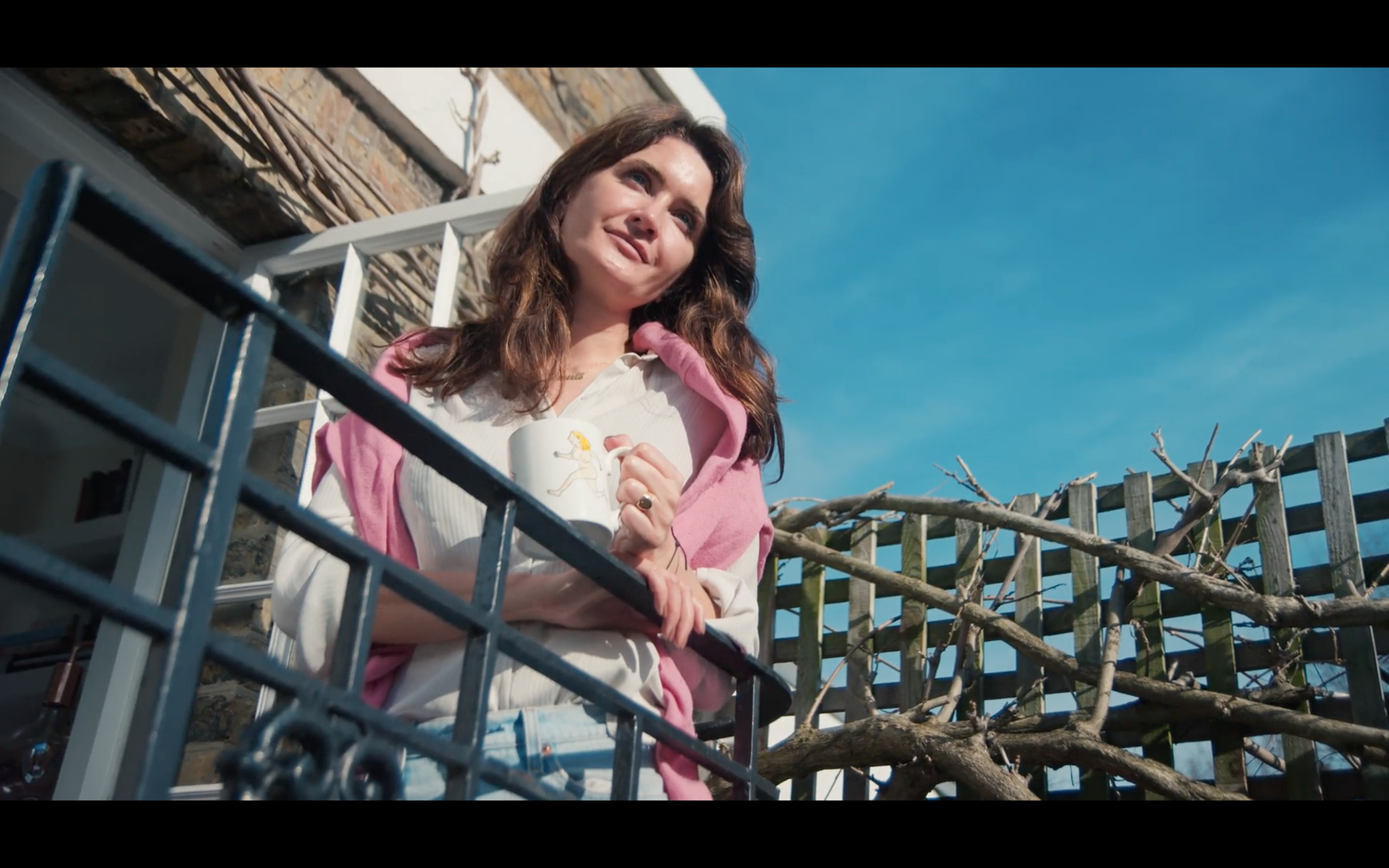Tape 125: Dog House
Right back at the start of the year I shot a short film which at the time was going to be called Good Boy (it is no longer called this, for reasons I’ll explain). It had emerged out of some work-in-progress script readings at a monthly scratch night called Dinner Time that I was running with Ben Target and Miranda Holms at the end of last year. Miranda had suggested the idea of a sitcom about a guy who had to pretend to be a dog, and I had picked up the idea to see what I could do with it. It quickly became apparent that I couldn’t figure out how to turn it into an ongoing sitcom idea – it seemed like at some point over multiple episodes somebody would surely go “Wait, this isn’t a dog.” But if the idea was condensed into a short film, then there was a sort of magical realist weirdness to the premise that seemed to stand on its own that I quite liked. I wrote a script for it and it was read out at Dinner Time and I listened to the feedback from Ben and the audience and thought that, yes, there was a decent short in here. I decided to film it in the new year, with Miranda directing and Matt Riley as our amazing DoP.
At the time, it felt like quite a small indie project, a side thing happening alongside various other bigger things I was working on. As things have panned out, all those other things are still cooking away, so that small side project has ended up being the major thing I did this year, and Miranda and I have been tinkering with it ceaselessly over the last few weeks to get it ready for its premiere at Eggbox tonight. I thought this week I’d say a bit about it, partly because most of the people reading this won’t be able to make it to Eggbox, and partly because even for those who are coming, I’m obviously just planning on playing the thing, not standing onstage and talking at length about it, so this newsletter might fill in some background info that people might find interesting!
In particular, I wanted to talk about meaning, which is a word I’ve been coming back to a lot in my work this year. Over the summer, I ran a couple of workshops on solo show-making for Angel Comedy, in which I tried to get people to actively consider the concept of meaning in their shows, rather than letting it be a last-minute consideration that happens after you’ve written the entire thing. It’s a bit overly simplistic, but I essentially broke the pursuit of meaning down into three stages:
- THEME – This is the big subject you’re tackling. Maybe you’re making a show about climate change, or a film about your relationship with your parents. This is the thing that both you AND the audience knows the work is about.
- INTENTION – This is the thing you want to say about that theme. Maybe you want to say that there are still ways to feel hopeful about climate change even in the midst of the news cycle; or maybe you want to say that our relationship with our parents changes when we come to see them as fallible humans rather than perfect ideals. This is the thing you know the work is about, but whether or not the audience works it out comes down to how well you communicate it.
- MEANING – This is what the audience actually takes away from the work, what it actually means for them. It’s a combination of your intention along with everything else that they bring to it. It’s the thing that the audience knows the work is about, but that you can’t necessarily see. Whether or not you can see it depends on how far you’ve been able to step away from the work and let other people see themselves in it, because ultimately, it doesn’t matter what you intend. What matters is how people feel after experiencing it. That’s what the work actually means.
I recently did a creative consultancy session with a wonderful writer-performer who attended one of these workshops and was exploring some really exciting ideas, but had got a bit stuck trying to work out what the meaning was, having figured out his theme and intention. I reminded him that he didn’t need to decide what the meaning was, that the meaning was contained in what other people brought to it. All he needed to do was make a show that allowed the audience the space to do that, that didn’t insist upon its own meaning, but left gaps that can be filled in by the details of other people’s lives. I think clarifying that point seemed to really help him get back on track, and I’m excited to see what comes of his show.
I mention all this because, having spent the last few weeks watching and rewatching the film, I’ve realised a way in which I’ll need to adapt my definition of meaning in any future workshops on the subject. I’ve realised that the other key ingredient in the meaning of a creative work is your own future self. Just as the audience will bring parts of themselves to a show or a film that will fill in the gaps you’ve left and help them make it into something that has resonance for them, so too will you be able to see what you were doing later in ways that you couldn’t see at the time.

Good Boy is no longer called Good Boy. It’s now called Dog House, because after we shot it we learned that there is a Norwegian horror film called Good Boy with a similar premise. We had absolutely no idea the film existed, and from what I can tell they’re very different (I think theirs possibly goes down the torture porn route), but it felt silly to invite comparisons, so we changed the title to Dog House, which reflected one of the initial themes and intentions of the short. When I wrote it, we very much felt like the whole thing was an absurdist reflection on the rental crisis and homelessness. All that is in there, I think, and I really like the new title, but something deeper became clear to me watching it last week – you don’t need to have strong feelings about the homelessness epidemic (although everybody should), nor do you have to have suffered at the hands of the turmoil in the rental market (though I’m sure most of us have) – I realised that the film actually operates on a much simpler level than that, in that it’s essentially about loneliness.
There’s a line halfway through the film which there’s been some toing and froing on for a while, when my character says “You’re looking really well.” It’s occasionally been floated that the line is unnecessary, and could be cut. Every time, there’s been something in my gut that goes “No, that should be there,” and I’ve not really been sure why. After twigging the loneliness connection, it made sense to me why I felt such a strong attachment to this line – it’s the most noticeable of several moments throughout the film when my character tries and fails to form a connection with someone. The film is about someone trying to find somewhere to live, but on a more fundamental level, it’s just about someone who wants to be accepted, and given space to be himself, and it’s a space he repeatedly fails to find, even in the scenes he shares with his friend.
None of this was intentional, but I now can’t see it any other way. When I wrote it, all I was doing was stringing together a series of short scenes – sketches, almost – about a guy doing dog stuff. But somehow, as we’ve endlessly gone back and forth over it, restructuring the order of the scenes, figuring out where to put space into it, where to remove space, working with composer extraordinaire Andy Russell on the score, and with colourist Dan Beddoes on the grade, it’s turned into something with real heart, I think. It looks and sounds beautiful, and underneath all the weird grossout gags and the awkward comedy, I think there’s a sad heart to it.
I could never have seen that in it without having processed some of the things I’ve had time to process since I made it. Things happened in my personal life that made me look at it differently when I came back to it. And because we had left those gaps in it, those places where we wanted an audience to be able to see it and make it about themselves, I felt like I had permission to do that, to take the story out of the hands of the person I was last year and turn it into something slightly different. Somehow, that experience feels like it speaks to the essence of what I was exploring in those workshops, and I hope it’s of interest to readers as well – there are always going to be gaps and holes in your work where the audience sees something in it that you couldn’t quite have predicted. The same is true of yourself. You will see things in it that you didn’t know were there. So don’t close up the gaps. As the people who run the festival that took its name from the quote variously attributed to Ernest Hemingway and Leonard Cohen say, that’s how the light gets in.
Of course, the beauty of this is that those of you who are coming tonight might see the film and think I’m talking absolute crap. You might go “That’s not about homelessness or loneliness, it’s about my cousin, who can’t stop buying fidget spinners.” That’s the wonderful thing. I hope we’ve made something that might mean something to you, in whatever way it needs to. Can’t wait for you all to see it.
A Cool New Thing In Comedy – Last night was the first night of Luke McQueen and Mark Silcox’s run of Songs With My Father at Soho Theatre, which was one of my absolute favourite shows at Mach Fest last year. You shouldn’t go tonight, because you should come to Eggbox, but if you go tomorrow I’ll see you there! I can’t wait to see it again.
What’s Made Me Laugh The Most – Siblings at the Stepdads Nativity show on Monday, playing a pair of horny innkeepers. So gloriously dumb.
Book Of The Week – I’ve just started Hanya Yanagihara’s To Paradise, and I assume I’ll be reading it for the rest of the year because it’s an absolute brick. So far, it’s less horrible than A Little Life, but I do have another 650 pages to go.
Album Of The Week – Not listened to any new albums since Peter Gabriel’s i/o last week, because it’s the album of the year and I’m going to listen to it forever now. “Live And Let Live” is gonna be my anthem for 2024, it’s soooooo good.
Film Of The Week – Saltburn. This is really good, but kind of gets unstuck in the final act, I think. Maybe it needed to be a tad longer, or to be restructured a bit, but mostly it’s brilliant. It’s a very funny and dark skewering of wealth and privilege, and Rosamund Pike and Richard E. Grant are brilliant in it. Barry Keoghan doing what he does best as well (playing weird little guys with creepy silhouettes).
That’s all for this week! As ever, if you’ve enjoyed the newsletter enough to share it with a friend, or encourage others to subscribe, I’d hugely appreciate it. Take care of yourselves until next time, and all the best,
Joz xx
PS I also really enjoyed seeing the premiere screening of Anna Southgate’s comedy pilot Mix Tape this week, which I had a lovely time filming in the summer with Robyn Cara, Zoe Lyons and Kel Matsena. I’ve no idea when it’ll be available to watch, but for now, please enjoy this picture of me with a topknot, because I think it’s hilarious:

